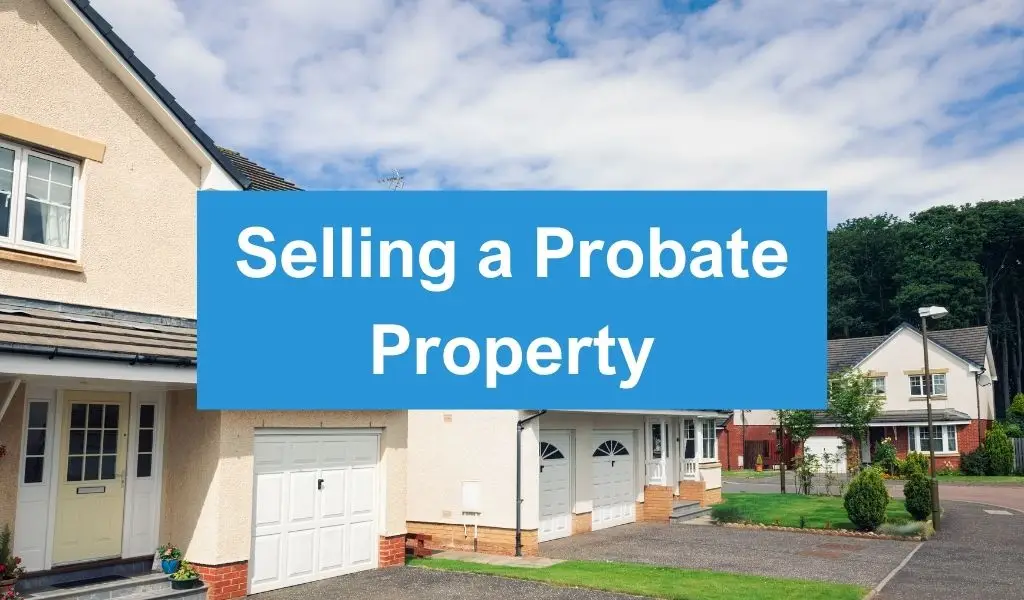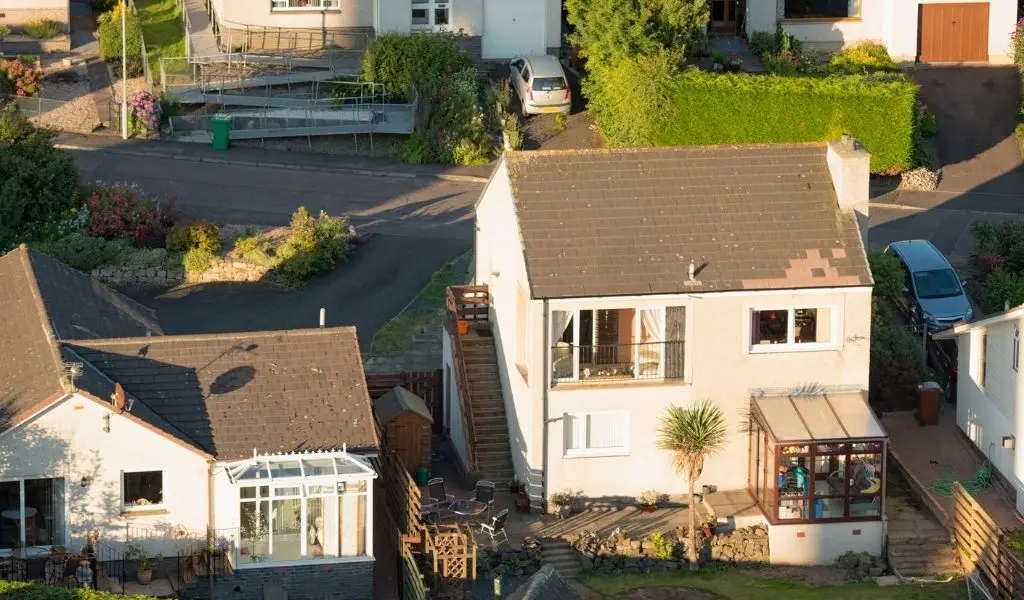Probate is the process of administering the will and estate of someone when he dies. This process involves obtaining a formal grant of probate from the court before selling assets to distribute among the beneficiaries. Now, the question arises, can an executor sell property before probate?
Can You Sell the Home of the Deceased Without Receiving the Grant of Probate?
The short answer to this question is that it is not possible to sell the house of the deceased without obtaining probate.
Although in such a situation, executors derive their authority from the will of the deceased. They can get legal status after obtaining a grant of probate. If the deceased dies without a will, then the administrator has no legal authority on the property until he receives a letter of administration.

What are the Essential Steps to Take at an Early Stage?
Check HM Land Registry
The personal representatives should verify the registration of the deceased’s home title. This registration has now become compulsory for all land transactions in England, Wales, and in many areas. It was not compulsory to register a purchase until 1 December 1990. Until 1 April 1998, gifts and assets of property were not mandatorily registerable.
Registration of the Title of the Property
If the title is registered, then obtain copies of the plan, title entries, and documents to check:
- Registration of the property is in the sole name of the deceased.
- The name of the deceased is correct.
- That the title covers all aspects of the property.
- That there is any mortgage or other charge on the property.
To apply for the grant, the personal representative should apply to contact the lender to get information on any charge securing money on the property to repay the charge. This is compulsory to apply for the grant.
There may be some restrictions, like the property is subject to a trust, or the consent of a third-party approval is essential for sale. In such cases, personal representatives should consult with their solicitors to comply with the restrictions.
Unregistered Titles
In the case of unregistered titles of the deceased’s home, the physical title deed is located. These may be available at the home of the deceased or with the solicitor of the deceased or with the bank. In such a situation, if the personal representatives engage with the solicitor to deal with the estate administration, deeds can be normally released to the solicitor. While on the other hand, if the personal representatives deal with the estate themselves, deeds will not be usually released without obtaining the grant. Therefore, that makes the answer to the question, can an executor sell property before probate, clear.
Checking The Documentation of the Deed
If the deeds don’t cover all the property, or if the documents are missing, it is helpful to know at an early stage. It is useful to keep everything earlier before finding a buyer. It is quite normal for the solicitor to know about the registration of the death of the deceased spouse or former co-owner. And that a death certificate is necessary to perfect the title. This may take a few weeks to obtain from the General Register Office.
If The Deceased Had a Partner in The Property
If the deceased was not the sole owner of the property but had a partner, then the legal title passes to the co-owner. The co-owner has the authority to sell the property without waiting for a grant. If it was a co-owned property, it will automatically pass to the surviving co-owner. The co-owner will only need the death certificate of the deceased.
If Seller Dies After Exchange of Contracts
If an unfortunate event takes place such as the seller dying after exchanging contracts and before completing the sale, it will become necessary to obtain a grant urgently to complete the sale. In such situations, it is feasible to obtain a grant of administration that is limited only to a specific purpose, such as the sale of the property.
Putting the Property up for Sale
If the title is in order, then the personal representatives can take the preliminary step to market the property. This involves steps like selecting an able estate agent and signing the terms of business of the agent.
If the estate is in complete order and the personal representatives expect to receive the grant in a couple of weeks. In this situation, they can instruct the agent to advertise and market the property. However, if the sellers have not received the grant and the buyer is ready, the seller cannot exchange the contract. They will have to wait until obtaining the grant.

Is Probate mandatory before the sale of inherited property?
Probate is not essential in all cases, for example, if the estate of the deceased passes to the surviving partner. But it is essential to sell the property without which the sale of the property of the deceased is not possible. It is possible in a situation where the deceased had a partner who has the authority to sell the property without obtaining probate.
Who might not get a grant of Probate?
The probate registry confirms that only the correct people are getting the grant. Application submission can become a complex issue if there are issues with the executors. If there is no executor, then there is a legal criterion for who can apply for a grant.
In which cases Probate is not mandatory?
If the property is in joint names and passes to the surviving civil partner or spouse, then the grant of probate is not essential. For example, the surviving partner does not need to apply for probate if he/she wishes to sell the property.
Can one Advertise Property for sale before Probate?
Yes, it is okay to market the property for sale before receiving probate. It is common practice to market a property for sale and apply for probate at the same time. This is particularly true when selling the property through an estate agent. However, the exchange of contract of sale is not legal until the seller obtains a grant of probate. It is the discretion of the seller to advertise before obtaining the grant or not. You might wonder, can a house be sold during probate? They should not market the property until obtaining a grant if there is delay or any concerns about the will.
How much time does the process take?
The time to obtain probate depends on the complexity of the will and the estate. The cases that are straightforward, the executor can obtain a grant of probate within 1 or 2 months.
So, can an executor sell property before probate? The answer is quite clear now.
What issues arise with selling a property before probate?
Putting up a house on the market is never an easy process. It comes with its fair share of issues. Through probate, those issues rise to a whole new level. Ideally, you should consider these potential problems so you can deal with them in case they occur.
- Maintaining the property before and after receiving probate is a major responsibility. This includes cleaning, fixing, and up keeping costs.
- Financial issues can arise. There are a lot of costs to bear, such as Inheritance Tax, maintenance costs, probate fees, etc. You pay these expenses before you receive probate and can own the property. Once you obtain the probate, it may not cover these costs, thereby leaving you in a financial crisis.
In comparison to a normal property sale, a property probate has more bureaucracy surrounding it.
The best way to sell a Probate Property
As an executor, the responsibility of removing all the belongings and furniture in the home before it is sold lies on your shoulders. It requires a lot of time and effort. So clear up your schedule to do it on time.
Word of advice from skilled estate agents will mostly be to remove all belongings from the home, including the loft areas, cellars, garages, and garden sheds, along with any personal fixtures and fittings.
Under certain circumstances, it might be ideal to hire professional cleaners. For example, for cleaning the windows.
Make sure that any outside locations are accessible, and if there is a garden, make sure to trim back any overgrown areas. The front garden should be free of any trash or other things.
Consider changing the locks, leaving drapes in the front rooms, and setting some timer lights on the home as security measures.
There is no requirement for a “For Sale” sign outside the house for the discreet seller.
Though they may be scant given the circumstances, if at all feasible, provide the agent some property notes. Any information above the bare minimum would probably be helpful to a potential buyer.


